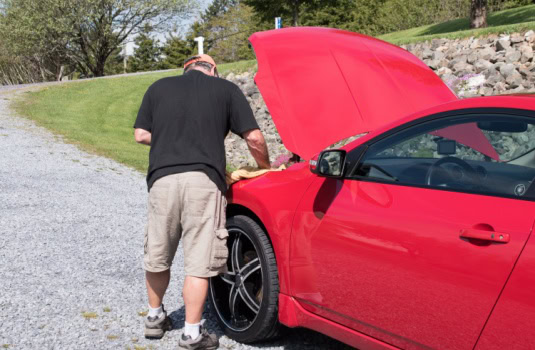
Owning a car in Georgia means more than just filling up the tank and keeping it clean. If you drive regularly, it’s essential to know when your vehicle needs maintenance and how to handle it properly. Not only does this keep you safe on the road, but it also saves money in the long run by avoiding major repairs.
The good news? You don’t need to be a professional mechanic to take care of many of the most important maintenance tasks. By following a few simple routines and understanding what to look for, you can keep your car running smoothly for years.
Ideally, you’ll be able to handle basic checks and small tasks yourself, but when something feels off, you should always know when it’s time to see a trusted mechanic. Here are 10 essential vehicle maintenance questions every Georgia driver should ask to keep their car reliable and ready for the road and don’t forget to get affordable car insurance!
10 Car Maintenance Tips to Follow
Regular vehicle upkeep doesn’t just extend the life of your car; it also makes every drive safer and more reliable. By following a consistent vehicle maintenance checklist, you can catch small issues before they turn into expensive repairs. The ten tips below cover everything from simple fluid level checks to headlight restoration and tire rotation schedules. Some tasks are quick enough to handle at home, while others may require a professional mechanic, make sure to know what some common car maintenance services will cost you in Georgia.
Either way, knowing what to look for ensures your vehicle is ready for Georgia’s highways, city streets, and country backroads year-round.
1. Can You Check Your Own Vehicle Fluids?
Checking your car’s fluids is one of the easiest and most important tasks for long-term vehicle health. Engine oil, coolant, transmission fluid, power steering fluid, and brake fluid all need regular attention. Low or dirty fluids can quickly lead to engine trouble or unsafe driving conditions.
In Georgia, summers get hot, so it’s also wise to test your air conditioning system before the heat sets in. Poor A/C performance could be as simple as low refrigerant levels or a clogged cabin air filter. Making this part of your vehicle inspection requirements ensures you’re ready for the road year-round.
If you’re not sure where to start, many auto parts shops will gladly show you how to perform these fluid level checks, or you can ask your mechanic during your next service visit.
2. Do You Know How to Check Your Belts and Hoses?
Your car’s belts and hoses keep vital systems like your engine and radiator running smoothly. With time, they wear out and can crack, fray, or split. Pop the hood and inspect them visually every few weeks. If you notice cracks or loose connections, schedule an appointment with a mechanic immediately. A broken serpentine belt, for example, can leave you stranded on the roadside.
If you hear squealing or whining from the engine bay, it’s often a belt that’s slipping. Addressing these small issues early is far cheaper than repairing damage after a breakdown.
3. Are You Aware of Potential Brake Issues?
Your brakes are your car’s most critical safety system. Modern vehicles are designed to alert you when there’s an issue: squealing or grinding noises, soft brake pedals, or dashboard warning lights.
Most brake pads should be replaced every 30,000 to 70,000 miles, depending on your driving style and vehicle type. City drivers may need new pads sooner because of frequent stopping. If you notice reduced resistance when pressing the brake pedal or hear squeaks every time you stop, don’t delay: get your brakes inspected right away.
Remember: worn brakes not only risk your safety but also increase repair costs by damaging rotors and calipers.
4. Can You Maintain and Replace Your Battery?
Vehicle batteries generally last around four years, but climate plays a big role. Georgia’s hot summers can shorten battery life, making regular inspections crucial.
Here are some battery care tips:
- Keep terminals clean and free of corrosion.
- Secure the battery to prevent vibration damage.
- Test your battery at least once a year, especially before winter or long road trips.
Always carry jumper cables or a portable jump starter. And consider adding roadside assistance coverage. Being stranded with a dead battery is never fun.

5. Do You Know How to Change Your Oil and Filter?
Oil keeps your engine lubricated and prevents overheating. Over time, oil breaks down and collects debris, making it less effective. That’s where your oil filter comes in, it removes contaminants before they can harm your engine.
Most modern vehicles recommend an oil change frequency of every 7,500 to 10,000 miles, but always check your owner’s manual. If you mostly drive short trips in stop-and-go traffic, you might need more frequent oil changes.
Signs you may need service sooner include knocking sounds, low oil levels, or excess exhaust smoke. Learning to perform this maintenance yourself can save money, you can check these 10 insurance tips to protect your new car in Georgia, but quick-lube shops can do it affordably if you’d rather not.
6. Can You Maintain Your Windshield Wipers?
Georgia weather can change quickly, and nothing is more dangerous than losing visibility during a storm. Windshield wiper maintenance is simple but critical. Replace your wipers at least twice a year, or sooner if they leave streaks or chatter across the glass. A quick way to extend their life is to wipe them down every time you refuel.
Changing blades is easy to do at home, but if you prefer, most auto parts stores will install them free when you purchase new ones. Always make sure your windshield washer reservoir is full, too.
7. Do You Know How to Check Your Tires?
Tires are where your vehicle meets the road, so their condition directly affects your safety. Before every trip, give them a quick visual inspection for punctures, uneven wear, or bulges. Most vehicles come equipped with a Tire Pressure Monitoring System (TPMS), but you should still check PSI monthly with a gauge. Underinflated tires hurt fuel economy and can cause blowouts.
For tread, try the penny test: insert a penny head-down into the grooves. If you can see the top of Lincoln’s head, your tread is too low. For more accuracy, use a tread depth gauge. Don’t forget your tire rotation schedule. Rotating every 5,000–8,000 miles ensures even wear and extends the life of your tires. Many drivers pair this service with oil changes for convenience.
8. Do You Know When to Replace Your Air Filter?
Your engine air filter prevents dirt and debris from entering the engine. A clogged filter reduces fuel efficiency and performance. Most manufacturers recommend air filter replacement every 12,000–15,000 miles, or once a year. If you drive in dusty or rural areas, you may need to replace it more often.
Symptoms of a dirty filter include sluggish acceleration, strange engine sounds, or a drop in fuel economy. Replacing an air filter is simple and inexpensive, making it one of the easiest ways to boost vehicle performance.
9. Have You Restored Your Headlights for Safer Night Driving?
Over time, headlights can become cloudy or yellowed due to UV exposure. This reduces nighttime visibility and increases the risk of accidents.
Headlight restoration kits are available at most auto parts stores and can make a big difference in just an hour. In some cases, replacement may be the better option, but restoration is usually cheaper and effective.
If you find yourself avoiding night driving because you can’t see well, don’t wait! Restoring your headlights is a quick safety fix that pays off immediately.
10. Is Your Roadside Emergency Kit Ready for Unexpected Breakdowns?
Even the best-maintained vehicles can break down. A roadside emergency kit is your backup plan. Essentials, along 10 items you should have, include:
- Jumper cables or portable jump starter
- Flashlight with spare batteries
- First-aid kit
- Bottled water and snacks
- Basic tools (screwdrivers, pliers, wrench)
- Tire inflator and sealant
- USB charging cables and power bank
You can also add a Bluetooth OBD-II scanner or apps like FIXD for smart diagnostics if your check-engine light comes on. Preparedness reduces stress and helps keep you safe until help arrives.
Are You Aware of the Importance of Ongoing Auto Maintenance?
Keeping up with regular maintenance is about more than avoiding breakdowns, it’s about safety, savings, and peace of mind. Each small task, from tire rotations to fluid checks, adds up to fewer surprises on the road and a longer vehicle lifespan.
Today’s technology makes it easier than ever. Many drivers in Georgia are turning to usage-based insurance (UBI) or telematics programs, which track safe driving and can lower premiums. Smart tools like OBD-II Bluetooth scanners or apps like FIXD also let you monitor your vehicle’s health in real time.
The bottom line? Staying proactive about your vehicle maintenance checklist not only prevents costly repairs, it helps you drive more confidently across Georgia’s busy highways and scenic backroads.